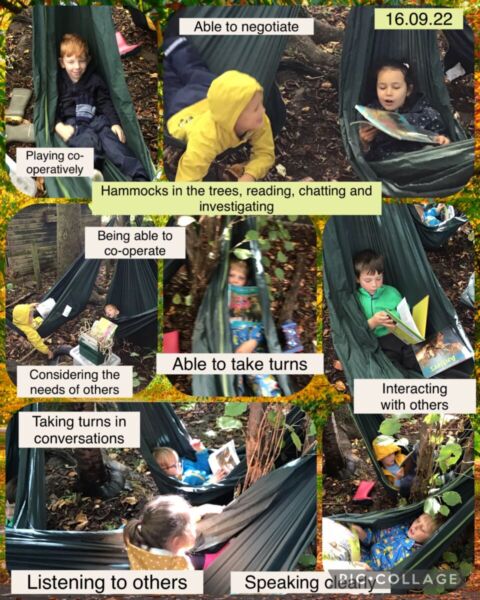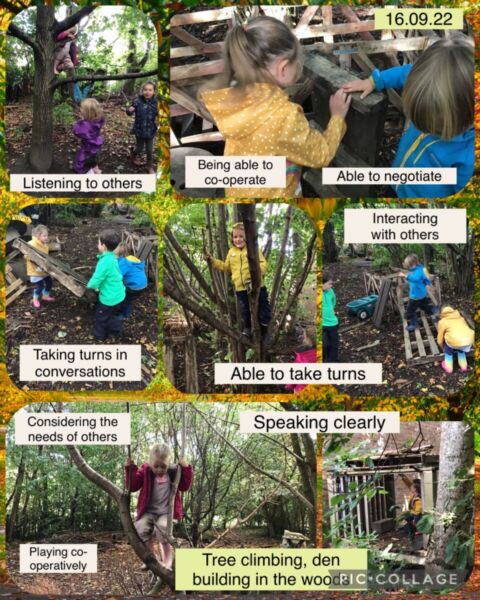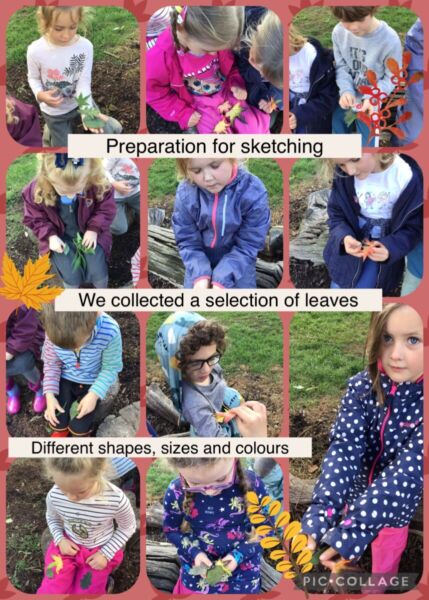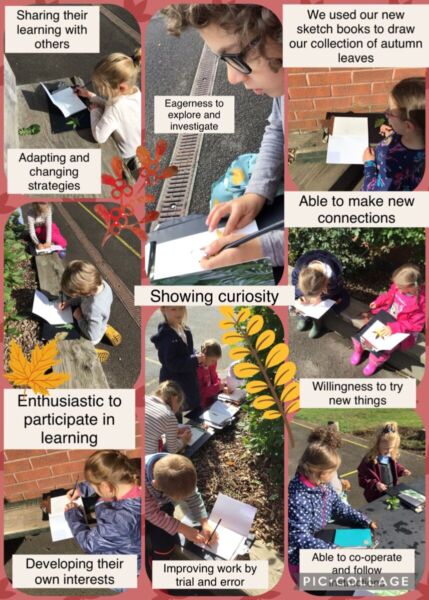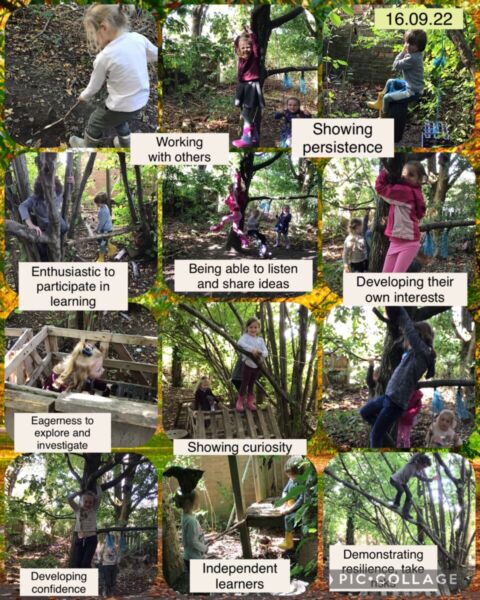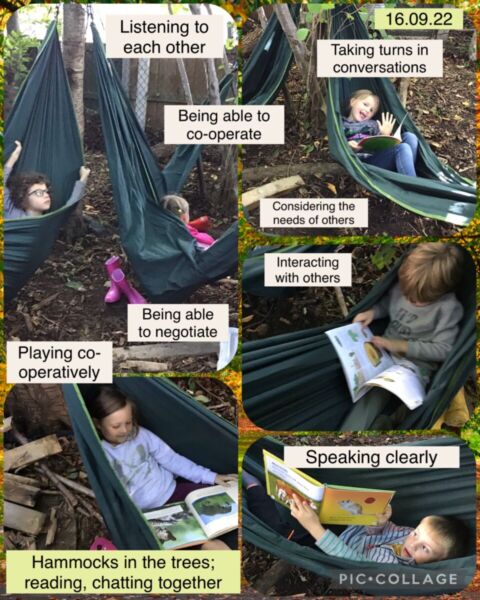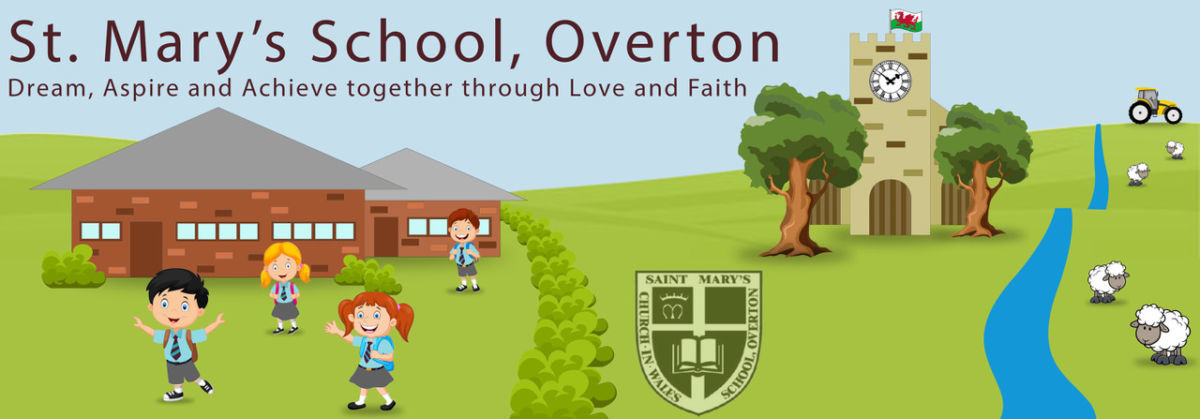Our Aims at Forest School
This powerful approach enables young children to be independent, self-motivated and considerate which sets them up for life long learning.
Forest School builds on a child’s innate motivation and positive attitude to learning, offering them the opportunities to take risks, make choices and initiate learning for themselves.
The Forest school learning environment provides opportunities for children to develop self-esteem, self-confidence, to form positive relationships with others, to develop a growing awareness of their emotional needs and the needs of others, to learn to co-operate and work with their peers and adults and to develop strategies in order to take risks within the boundaries of safety.
Forest School is about exploring and experiencing the natural world through practical activities. The children go out in all weathers, all year round, exploring and learning from the seasons and environment changes. The children’s interests along with the varied natural resources in our woodland are used to stimulate creative thinking, problem solving and skill development, all in the guise of play.
“The best classroom and the richest cupboard are roofed only by the sky” Margaret McMillan
Environmental Considerations and Conservation
Forest School has Environmental awareness at the heart of its ethos. The children are taught about respect and responsibility for the world around them. Both the children and adults are encouraged to respect their environment and to be aware of conservation issues of the woodland around them.
The children also learn about the impact of conservation and environmental issues.
Empathy and care for wildlife is developed through careful planning and evaluation and by involving children in site checks and planning environmental games will enhance awareness.
What is the role of outdoor learning?
Children learn best by directly experiencing things (I see, I do and I understand). They are active and so are drawn to the outdoors and by gross motor movement. By learning outdoors, Forest School provides children with opportunities to be active which is natural to them.
It is through their movement that they can develop their ideas, thoughts, make connections to their understanding of the world around them and show how they feel about things. Children’s educational experiences should be holistic with child at the centre of the curriculum and as adults we need to provide them with activities and challenges that will develop their love of learning. Forest School gives children opportunities to engage with the natural environment in a positive and supportive way.
The outdoor environment offers learning opportunities which are different, additional and equal to those which are taught in the classroom. All children need space outdoors to practise large scale movements which the indoor environment cannot begin to accommodate.
By giving children space in which to explore and learn from the world around them, cultivates an appreciation of the wonder and beauty of the natural environment.
‘The more children’s muscles, senses and whole bodies are exercised, the more the brain will develop it’s ability to learn intellectually’ The Forest School Training Company Limited
What will sessions entail?
Forest School or Outdoor Learning experiences are currently delivered to all foundation phase children for a half day session each fortnight and to key stage children on a rotational basis as part of a ‘Specialised Teaching Day’. You will be informed by letter of the dates your child will be taking part.
Clothing that will be required includes:
Wellington boots, warm, waterproof coat, waterproof trousers, hat, gloves, scarf and perhaps a change of clothing in the colder months and a long sleeved top, long trousers and a sun hat for summer months a must.
During these sessions it is not necessary for your child to wear school uniform – old, warm clothing is best!
Each child will need a parental consent form prior to the sessions beginning, which will include medical information and contact details.
Examples of the activities:
Identification of wildlife, Identification of trees, Identification of plants, Pond and woodland study, Seasonal knowledge and understanding, Team building, Making of habitat boxes, Using natural materials to make crafts …..to name but a few!
Who will be running the sessions?
We are very fortunate to have four members of teaching staff who hold the Forest School Practitioner Award, OCN Level 3 and a further member of staff with an Outdoor Learning Certificate. Each member of qualified staff have gained the relevant Outdoor First Aid certification and have attended the theoretical and practical assessment days for the course.
This fantastic opportunity has only been made available through funding by The National Lottery and BBC Breathing Places grant.
